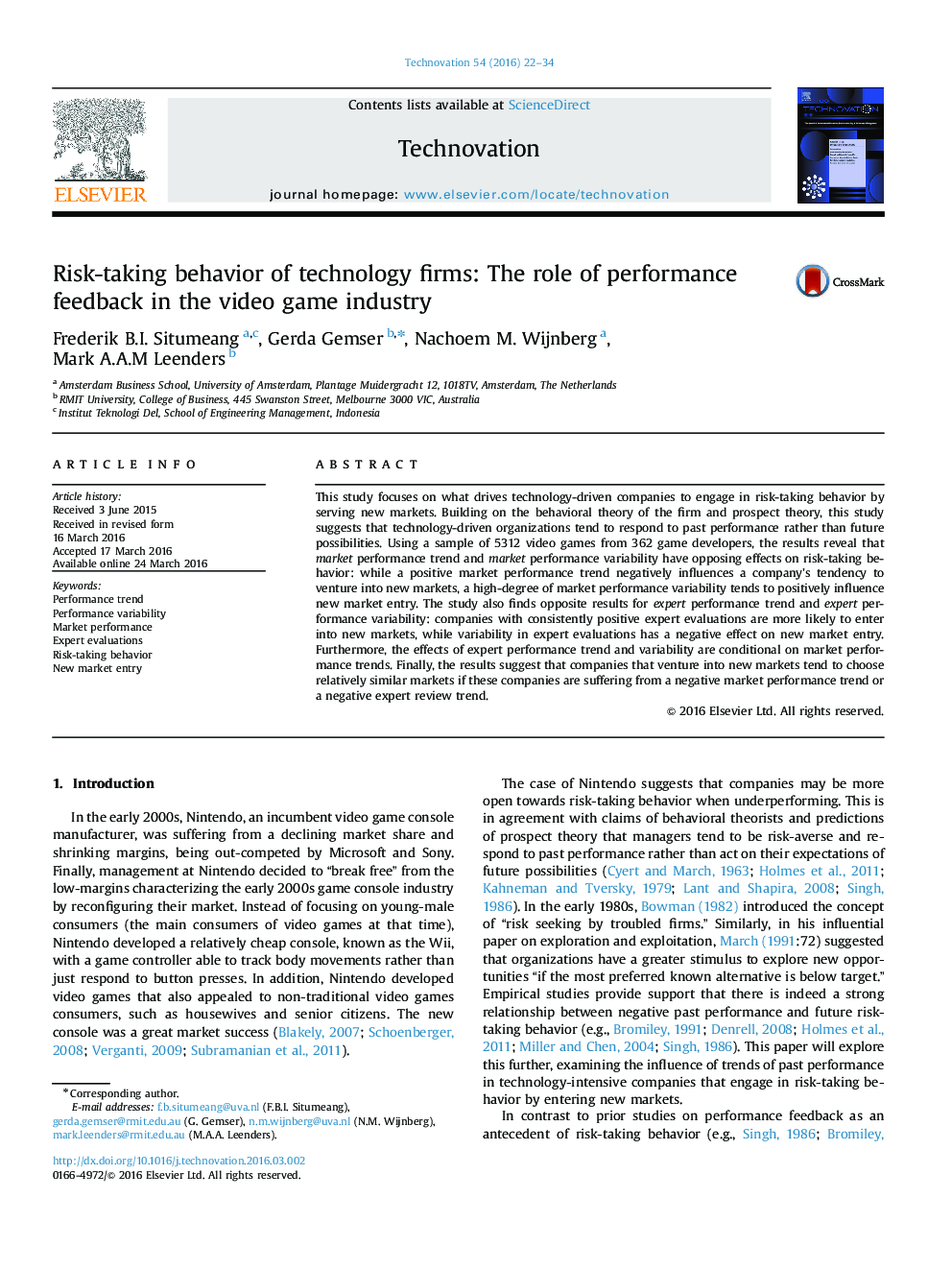| Article ID | Journal | Published Year | Pages | File Type |
|---|---|---|---|---|
| 1021793 | Technovation | 2016 | 13 Pages |
•A negative trend of market performance leads to new market entry.•A positive trend of expert performance leads to new market entry.•Variability of market performance is positively associated with new market entry.•Variability of expert performance is negatively associated with new market entry.•The effects of expert performance are conditional on the market performance trend.
This study focuses on what drives technology-driven companies to engage in risk-taking behavior by serving new markets. Building on the behavioral theory of the firm and prospect theory, this study suggests that technology-driven organizations tend to respond to past performance rather than future possibilities. Using a sample of 5312 video games from 362 game developers, the results reveal that market performance trend and market performance variability have opposing effects on risk-taking behavior: while a positive market performance trend negatively influences a company's tendency to venture into new markets, a high-degree of market performance variability tends to positively influence new market entry. The study also finds opposite results for expert performance trend and expert performance variability: companies with consistently positive expert evaluations are more likely to enter into new markets, while variability in expert evaluations has a negative effect on new market entry. Furthermore, the effects of expert performance trend and variability are conditional on market performance trends. Finally, the results suggest that companies that venture into new markets tend to choose relatively similar markets if these companies are suffering from a negative market performance trend or a negative expert review trend.
